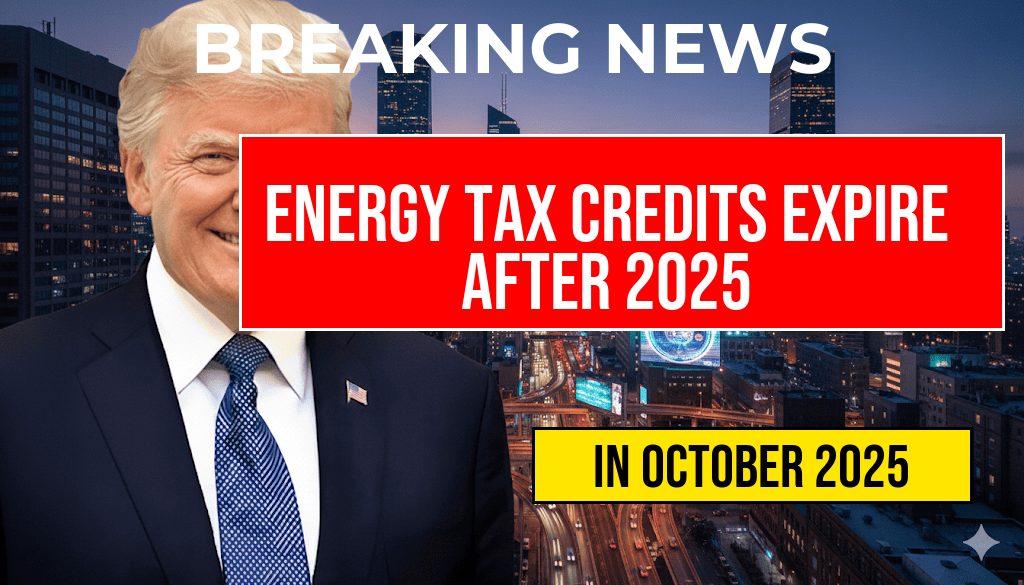The expiration of various residential energy tax credits after 2025 is poised to have significant implications for homeowners looking to invest in renewable energy solutions. Originally established to incentivize the adoption of green energy technologies, these tax credits have played a vital role in promoting energy efficiency and sustainability across the United States. As the deadline approaches, many homeowners are left weighing their options and considering the long-term benefits of investing in solar panels, energy-efficient appliances, and other eco-friendly upgrades. With only a few years remaining to take advantage of these incentives, the urgency to act has never been greater.
What Are Residential Energy Tax Credits?
Residential energy tax credits are financial incentives provided by the federal government to encourage homeowners to invest in energy-efficient technologies. These credits reduce the overall cost of installing renewable energy systems, making them more accessible to a broader audience. The most notable of these credits include:
- Solar Investment Tax Credit (ITC): Homeowners can receive a tax credit of up to 26% of the cost of installing solar panels.
- Energy Efficient Home Improvement Credit: Homeowners can claim a percentage of the costs associated with energy-efficient upgrades, including insulation, windows, and doors.
- Residential Renewable Energy Tax Credit: This credit applies to various renewable energy systems, including wind, geothermal, and biomass systems.
Impact of Expiration on Homeowners
The impending expiration of these credits raises concerns about the future of green energy adoption in residential settings. Homeowners who are considering upgrading their energy systems may feel a sense of urgency to act before the credits expire. The following points highlight the potential impact:
- Increased Costs: Without the tax credits, the initial investment for renewable energy systems could rise significantly, discouraging homeowners from making such upgrades.
- Slower Adoption Rates: A reduction in financial incentives may lead to decreased interest in green technologies, undermining years of progress in the renewable energy sector.
- Environmental Consequences: The decline in residential adoption of renewable energy could hinder efforts to combat climate change, as fewer homes transition to sustainable energy sources.
Considerations for Homeowners
As the expiration date approaches, homeowners must carefully consider their options. Here are several factors to keep in mind:
- Assess Current Energy Needs: Evaluate your home’s energy consumption and determine if an upgrade is necessary.
- Research Available Options: Investigate different renewable energy technologies and their associated costs to find the best fit for your home.
- Consult with Professionals: Speak with energy consultants or contractors who specialize in renewable energy to gain insights and recommendations.
Future of Green Energy Incentives
While the current residential energy tax credits are set to expire in 2025, the future of green energy incentives remains uncertain. Advocacy groups and environmental organizations are pushing for the extension or replacement of these credits, highlighting their importance in achieving national sustainability goals. As the political landscape evolves, there may be opportunities for new legislation aimed at supporting renewable energy adoption.
For instance, the Forbes article on renewable energy incentives discusses the potential for new financial programs that could replace the current credits. Additionally, the Wikipedia page on federal tax credits offers a comprehensive overview of energy efficiency initiatives in the U.S.
Conclusion
As the countdown to the expiration of residential energy tax credits continues, homeowners are urged to make informed decisions regarding their energy investments. The potential loss of these incentives could reshape the landscape of green energy adoption in the residential sector. By acting swiftly and taking advantage of existing programs, homeowners can play a crucial role in promoting sustainability and reducing their environmental footprint.
Frequently Asked Questions
What are the Residential Energy Tax Credits?
The Residential Energy Tax Credits are financial incentives provided by the government to encourage homeowners to invest in renewable energy systems, such as solar panels, wind turbines, and energy-efficient home improvements.
When do the current energy tax credits expire?
The current residential energy tax credits are set to expire after 2025, meaning homeowners will need to act before this deadline to take advantage of the incentives.
How can homeowners benefit from the tax credits before they expire?
Homeowners can benefit from the tax credits by installing eligible green energy systems before the expiration date, allowing them to claim a percentage of the installation costs as a tax deduction.
What types of green energy systems qualify for the credits?
Eligible green energy systems include solar panels, solar water heaters, geothermal heat pumps, small wind turbines, and certain energy-efficient upgrades to existing homes.
What happens to green energy incentives after 2025?
After 2025, the green energy incentives may no longer be available in their current form, which could lead to higher installation costs for homeowners looking to adopt renewable energy solutions.

Leave a Reply